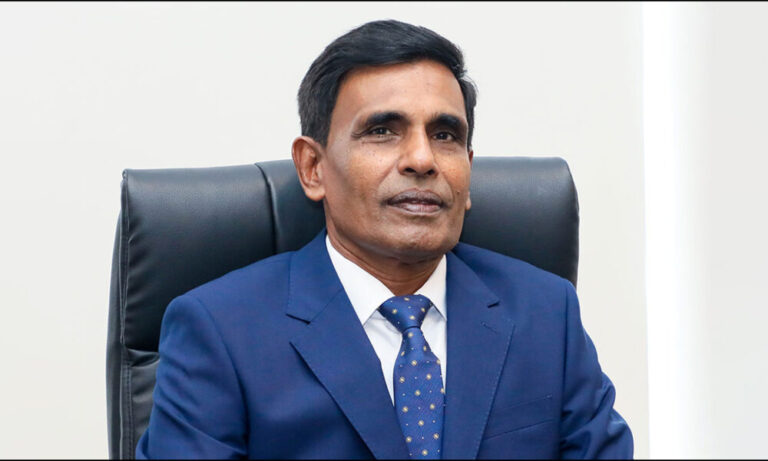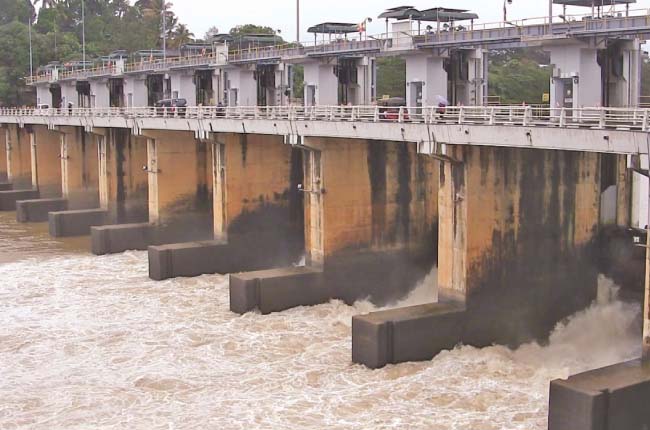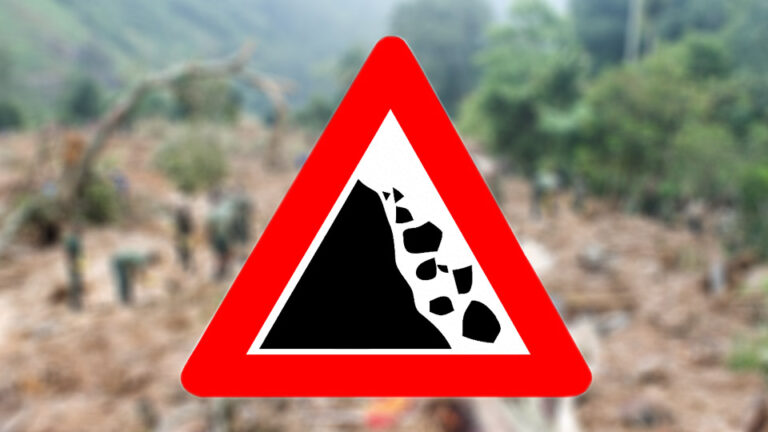November 18, Colombo (LNW): Public Security and Parliamentary Affairs Minister Ananda Wijepala told Parliament today (18) that investigators have stumbled upon indications of possible ties between certain politicians and underworld figures.
These leads, he said, surfaced during questioning of several recently detained suspects, including individuals associated with Ishara Sewwandi, who was arrested earlier this year.
Speaking during the Committee Stage debate on the 2026 Budget, the Minister confirmed that inquiries are actively progressing, with multiple agencies now examining the alleged connections. He added that, in parallel, international efforts are under way to apprehend a further 80 fugitives sought for organised criminal activity.
Interpol has issued Red Notices for these individuals, and Sri Lankan authorities are said to be working closely with the organisation to coordinate their capture.
Wijepala also reported a series of significant arms recoveries linked to intelligence extracted from a group of gang members detained in Indonesia. Since August 30, security forces have seized seven T-56 rifles, a T81 firearm, six pistols, nine revolvers, two additional weapons and nearly a thousand rounds of ammunition.
Minister Says Probe Uncovers Possible Political Links to Criminal Networks
Firing Up Soon.. South Africa’s flame-grilled favourite chicken Galito’s to launch in Sri Lanka and Maldives
Galito’s, one of South Africa’s most successful fast-casual exports, is set to tantalize Sri Lankan taste buds with its signature flame-grilled chicken and fiery flavoured sauces. The franchise agreements were signed between Mr Abdul Azeez Mohamed Hilme, Chairman & Managing Director, Abdul Azeez Brothers Pvt.. Ltd and Louis Germishuys, Galito’s International Limited, Founder & CEO, paving the way for the brand’s official entry into Sri Lanka and Maldives
Started in the small town of Nelspruit, South Africa in 1996, Galito’s quickly rose to prominence as a household name in South Africa, celebrated for its authentic flame-grilled flavour, marinated for hours in freshly prepared peri-peri sauces made from real herbs, garlic, lemon, and African bird’s-eye chillies. Over the years, the brand has expanded rapidly, now serving customers in more than 17 countries outside South Africa including Kenya, Canada, Serbia and Bangladesh with 260 stores. Sri Lanka is the latest destination to join this global footprint, offering food lovers a chance to experience the bold South African flavours.
Two Galito’s outlets are scheduled to open in premium locations in Sri Lanka within the next year, offering customers a vibrant dining experience centred on quality, flavour, and innovation. An outlet in the Maldives is also planned for a later stage, further extending the brand’s reach in the region.
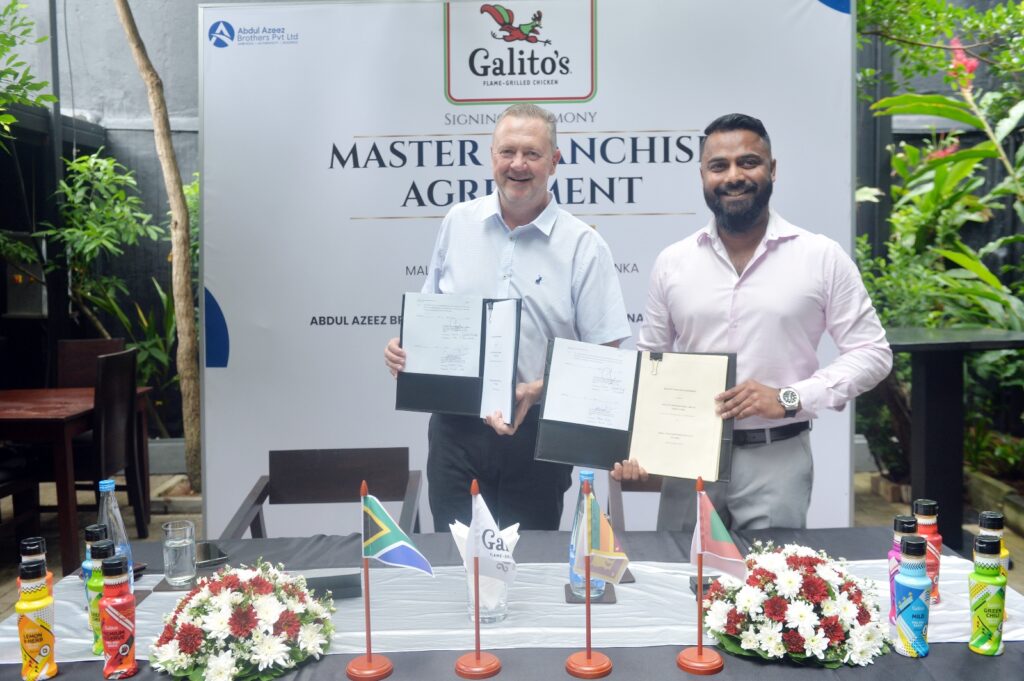
Abdul Azeez Brothers Pvt. Ltd. has a proven track record of introducing international food brands to Sri Lanka, the Maldives, with preparation underway for its entry into the Kingdom of Saudi Arabia. The company successfully brought Singapore’s PastaMania to the region, and developed its own Sri Lankan brand, Island Wraps, which is now being prepared for global expansion.
The introduction of Galito’s reflects Abdul Azeez Brothers’ continued commitment to diversifying dining options and creating new culinary experiences for Sri Lankan customers.
Quote – “We are delighted to bring Galito’s to Sri Lanka. Its flame-grilled chicken and authenticfiery sauces have won hearts across the world, and we are confident that Sri Lankan customers will embrace this exciting new experience. The launch strengthens our vision of introducing diverse global cuisines while also building Sri Lanka’s reputation as a hub for international dining.”
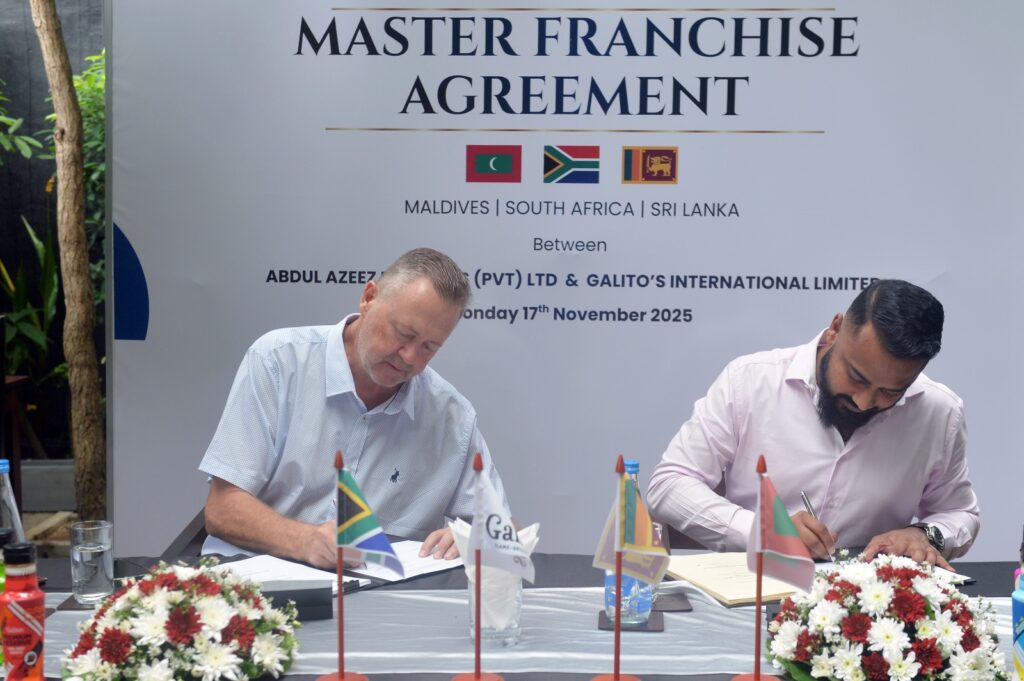
Sri Lanka Yet to Fix Accord Concerning US Reciprocal Tariffs
November 18, Colombo (LNW): Sri Lanka has not yet settled on a final accord with the United States concerning reciprocal tariffs, with negotiations still in progress, Foreign Minister Vijitha Herath informed Parliament yesterday (17).
According to the Minister, both nations have engaged in 17 rounds of talks to date. He noted that Sri Lanka had succeeded in pushing for a substantial reduction in certain American tariffs — lowered from 44 per cent to 20 per cent — during these discussions.
He also recalled that former US President Donald Trump had, in an order issued on 13 November, removed duties entirely on several Sri Lankan food exports, a move Colombo continues to view as diplomatically significant.
Reflecting on the broader diplomatic landscape, Herath claimed that Sri Lanka had made considerable headway over the past year. He said the country had revived stalled relationships and opened new channels with a number of states, particularly in regions where engagement had previously been minimal.
In Latin America and the Caribbean, Sri Lanka had established new formal ties with Antigua, Barbuda and Belize, aiming to widen its diplomatic footprint beyond its traditional partners.
The Minister also highlighted a notable increase in high-level foreign visits, with more than 20 heads of state and senior leaders travelling to Sri Lanka in the last year. Over the same period, he said the government concluded upwards of 70 memoranda of understanding with countries across South Asia, East Asia, Europe, the Middle East, and the Caribbean.
Herath further reported that the Foreign Ministry had assisted around 150 overseas firms in exploring investment opportunities in Sri Lanka, while initial discussions had been initiated with roughly 2,000 companies.
The Minister suggested that this growing interest signalled renewed confidence in the country’s economic prospects, although he acknowledged that sustained diplomacy and stable policy frameworks would be essential to convert that interest into long-term partnerships.
Sri Lanka Faces Mounting Concern Over Men’s Mental Health as Suicide Rates Remain High
November 18, Colombo (LNW): Sri Lanka is confronting a persistent mental-health challenge, with men continuing to bear the brunt of conditions such as depression and anxiety.
Fresh assessments from the World Health Organisation (WHO) indicate that the country’s male suicide rate stands at roughly 27 per 100,000 people—far above the global average of 10.5. Women, by comparison, record a rate of around five per 100,000, bringing the national figure to approximately 15 per 100,000.
The WHO’s 2022 analysis highlights striking age-related patterns. Among men, suicide becomes more common with advancing age, peaking among those aged 55 and above at an estimated 65 per 100,000.
For women, the highest rates are found among younger adults, particularly those aged between 17 and 25, where the figure reaches about 10 per 100,000.
The study further notes that the majority of these deaths were caused by hanging, accounting for nearly 70 per cent of recorded cases. Other methods included pesticide ingestion—still an issue in many rural communities—along with a mixture of non-pesticide poisoning and other means.
Globally, the WHO reports that suicide represents more than one in every hundred deaths, with at least twenty attempts for every life lost. In 2019 alone, around 703,000 people across all age groups died by suicide, with lower-middle-income countries—where most of the world’s population lives—bearing the greatest share. Among those aged 15 to 29, suicide ranked as the fourth leading cause of mortality.
Local health workers in Sri Lanka say the figures reflect not only long-standing pressures but also newer stresses, including economic uncertainty and social isolation. Some community organisations are now calling for better early-intervention services, greater public awareness, and more culturally sensitive outreach efforts in the hope of easing the burden on those who feel they have nowhere else to turn.
Reservoir Gates Opened as Persistent Rain Swells Water Levels
November 18, Colombo (LNW): The Irrigation Department has confirmed that two spillway gates at the Deduru Oya Reservoir have been lifted by around a foot each, increasing downstream discharge to roughly 1,400 cubic feet of water per second as the region continues to face unrelenting rainfall.
Elsewhere, engineers at the Polgolla Mahaweli Dam reported that six of its sluice gates were raised earlier today, each by about 18 inches. This controlled release is sending an estimated 9,000 cubic feet of water per second towards the Victoria Reservoir, easing pressure on the Polgolla basin after several days of unsettled weather.
Officials are advising communities living along the downstream stretch of the Mahaweli River to remain vigilant, particularly those who rely on the river for transport, fishing, or daily chores. With water levels expected to fluctuate throughout the day, local disaster-management teams have been placed on alert and residents urged to keep a close eye on official safety updates.
Customs Confirms Release of Detained BYD Vehicles as Court Reviews Progress
November 18, Colombo (LNW): Sri Lanka Customs has notified the Court of Appeal that all previously detained BYD vehicles have now been handed over to the importers, following the arrangement reached during the earlier hearing.
Deputy Solicitor General Chaya Sri Nammuni, representing Customs, conveyed this to the bench as several writ applications filed by John Keells CG Auto (Pvt) Ltd came up before Court of Appeal President Justice Rohantha Abeysuriya and Justice K. Priyantha Fernando. The dispute centres on the motor specifications of several BYD models, which led to their temporary detention.
The cases were listed primarily to confirm that Customs had honoured its earlier undertaking to release the vehicles. According to counsel, the process has now been completed, aside from a small number of units retained for technical examination.
The Court also instructed all parties to submit written arguments on 18 November concerning an intervention request lodged by the Vehicle Importers Association, which seeks to join the proceedings. A ruling on that application is expected on November 28.
Earlier, on 11 November, the Court directed Customs to expedite the clearance of 625 BYD vehicles, subject to bank and corporate guarantees. Customs subsequently agreed to release a variety of models—such as the Atto range, Dolphin variants, and the Sealion 7—under the stipulated guarantee conditions. The bench was informed that only six vehicles remain in custody to allow further testing of their motor capacity.
President’s Counsel Farzana Jameel appeared for the petitioners, while Senior Additional Solicitor General Sumathi Dharmawardena, PC, together with Deputy Solicitor General Nammuni, represented Sri Lanka Customs.
Chief Prelate Demands Accountability After Controversial Temple Incident
November 18, Colombo (LNW): The Chief Prelate of the Sri Lanka Amarapura Maha Nikaya, the Most Venerable Karagoda Uyangoda Maithri Murthy Thero, has written to the President expressing grave concern over an incident in Trincomalee, where police officers reportedly removed a Buddha statue from the grounds of a long-established temple.
In his letter, the Chief Prelate emphasises that the Sri Sambuddha Jayanthi Bodhiraja Viharaya—founded in 1951—has been formally registered with the Department of Buddhist Affairs and recognised as part of the Amarapura Maha Nikaya. He notes that the land on which the temple stands was officially granted to the institution in 2014, confirming its legal status and long-standing presence in the area.
Despite this, the letter states that the temple’s resident monks have faced continued intimidation and pressure, causing widespread concern among both the Sangha and the broader Buddhist community. The Chief Prelate strongly denounces the events said to have taken place on Sunday (16), describing them as entirely unacceptable.
He further questions the authority under which the police acted, particularly regarding the removal of the statue and the alleged assault on monks—an altercation which left the Chief Incumbent injured and requiring hospital treatment. Such conduct, he argues, constitutes a clear breach of Article 09 of the Constitution.
The letter urges the President to intervene without delay, calling for an immediate halt to any plans to demolish structures within the temple grounds. It also requests that all relevant agencies be instructed to ensure the protection of the temple, its property, and the monks residing there, amid rising unease among the faithful.
Authorities Issue Landslide Warnings to Eight Districts
November 18, Colombo (LNW): Residents in several parts of the country have been urged to remain on high alert after continuous downpours triggered early warnings of potential landslides across a number of districts.
The National Building Research Organisation announced that its advisories would remain in force from 7.00 p.m. Monday (17) until 7.00 p.m. Tuesday (18), cautioning that saturated soil conditions could worsen if the unsettled weather persists.
Enhanced, level-two alerts have been issued for communities within the Haldummulla administrative area in Badulla and the Aranayaka division in Kegalle, where officials say the terrain is especially vulnerable following days of relentless rain.
In addition, level-one notices have been extended to pockets across eight districts, with authorities advising residents to monitor official updates closely and be prepared to relocate should conditions deteriorate.
Doctors’ Union Presses On with Industrial Action as Talks Drag On
November 18, Colombo (LNW): The Government Medical Officers’ Association signalled that its industrial action would carry on through today (18), insisting that authorities have yet to offer a meaningful response to the issues the union has raised.
A group of senior representatives from the association had travelled to the Presidential Secretariat earlier in the day for what was expected to be a decisive round of discussion.
The talks, held under the direct supervision of President Anura Kumara Dissanayake, brought together several high-ranking figures from the union in an effort to break the stalemate.
However, participants close to the negotiations suggested that progress remained sluggish, with both sides attempting to narrow gaps on long-standing concerns such as staffing shortages and stalled professional allowances.
Low pressure area continues to persist: Several provinces to witness heavy falls about 100 mm (Nov 18)
November 18, Colombo (LNW): The low pressure area over the island continues to persist and cloudy skies can be expected over most parts of the island.
Showers or thundershowers will occur at times in Northern, North-central, Eastern, Southern and Uva provinces.
Showers or thundershowers will occur at several places in the other areas of the island after 1.00 p.m.
Heavy falls about 100 mm are likely at some places in Western, Sabaragamuwa, Northwestern, Southern and Uva provinces and in Kandy and Nuwara-Eliya districts.
Misty conditions can be expected at some places in Sabaragamuwa, Central, Uva and Southern provinces during the early hours of the morning.
The general public is kindly requested to take adequate precautions to minimise damages caused by temporary localised strong winds and lightning during thundershowers.
Marine Weather:
Condition of Rain:
Showers or thundershowers will occur at several places in sea areas around the island.
Winds:
Winds will be north-easterly and speed will be (20-30) kmph. Wind speed can increase up to 40 kmph at times in the sea areas off the coast extending from Kankasanthurai to Galle via Mannar, Puttalam and Colombo.
State of Sea:
The sea areas off the coast extending from Kankasanthurai to Galle via Mannar, Puttalam and Colombo will be moderate at times. The other sea areas around the island will be slight.
Temporarily strong gusty winds and very rough seas can be expected during thundershowers.

